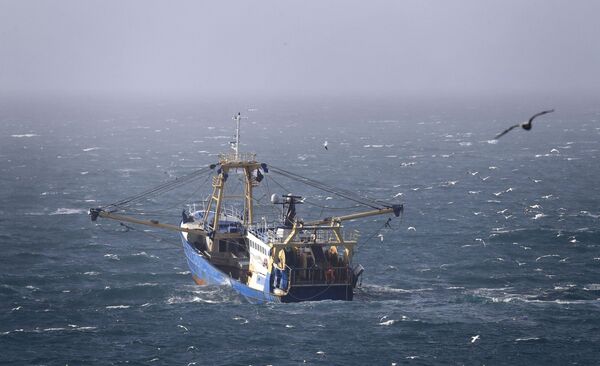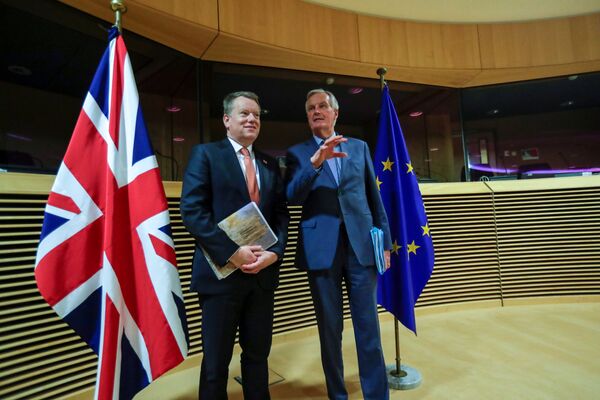Amid stalling EU-UK post-Brexit trade talks, France has rebuked British Prime Minister Boris Johnson's stance on the issue as failing to steer the negotiations from the brink of collapse, writes the Daily Mail.
As he made a speech in Paris on Monday, addressing French ambassadors based in Europe alongside German counterpart Heiko Maas, Minister of Europe and Foreign Affairs Jean-Yves Le Drian said:
“Negotiations are not advancing due to the intransigent and frankly unrealistic attitude of the United Kingdom.”
The negative assessment comes after EU chief negotiator Michel Barnier deplored lack of headway after the seventh round of trade talks on 18 - 21 August, hinting that a deal appeared unlikely amid the stalemate on issues such as a level playing field and fishing rights.

Negotiators for both sides had converged on the Belgian capital as the clock is ticking to hammer out a deal timed to the end of the transition period in January. Yet while some progress was made on technical issues, the EU and UK seemed to be entrenched regarding the main obstacles.
“Those who hoped that negotiations would move forward quickly this week will have been disappointed,” Barnier told reporters after negotiations ended.
Lack of progress on fundamental issues reportedly prompted Michel Barnier to seek support from Germany, which holds the rotating presidency of the EU Council, and France.

An EU insider was quoted by the Daily Express as saying:
“[Michel Barnier] thinks we're coming to the end of the road.”
Barnier was reportedly urging German Chancellor Angela Merkel and French President Emmanuel Macron to pressure Boris Johnson to adopt a more conciliatory stance on post-Brexit relations with the bloc.
Johnson has insisted he is prepared to walk away from the negotiating table within weeks rather than compromise on the issue of sovereignty, writes the outlet, with earlier reports suggesting an agreement that ‘constrains’ the UK to Brussels’ rules and infringes sovereignty would not be tolerated.
Frustrated EU officials were said to be accusing London of a 'wasted summer'.
However, Tory MPs were reported as dismissing the accusations, suggesting that the EU was trying to force Downing Street to make concessions, oblivious of the fact that the UK was now “under new management” and it was “not like it was under Theresa May”.
Issues of Divergence
Brussels has been pushing for an overall, wide-ranging agreement in one comprehensive treaty, while the UK seeks a simpler free trade deal, similar to the one in place between the bloc and Canada, with separate agreements on other matters.
The main areas of divergence are the EU’s demand for level playing field rules, ensuring close alignment on issues such as state-aid, environmental and employment regulations, the dispute over fishing quotas in UK waters, and a possible role for the European Court of Justice (ECJ) in overseeing a deal.
As the sides lock horns over the deal, the EU insists it must be readied in time to be approved at a summit of the bloc's 27 national leaders on 15-16 October. This would potentially enable a ratification of the agreement this year.
The United Kingdom officially left the European Union on 31 January, entering a transition period set to run to the end of this year, with the sides meeting for rounds of talks to avoid a no-deal Brexit.


